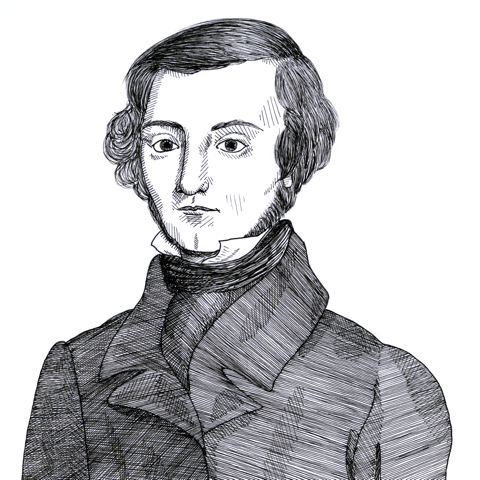
Tocqueville on the 1848 Revolution in Paris (1851)
Found in: The Recollections of Alexis de Tocqueville (1896)
The French aristocrat and liberal politician Alexis de Tocqueville (1805-1859) was elected to the Constituent Assembly in April 1848 following the revolution in February. He played a major role by serving on the committee to draw up a new constitution for the French Republic. Here are his reflections on the first days of the new Constituent Assembly in May in which he emphasized the threat to property by the revolutionary crowds:
Revolution
One thing was not ridiculous, but really ominous and terrible; and that was the appearance of Paris on my return. I found in the capital a hundred thousand armed workmen formed into regiments, out of work, dying of hunger, but with their minds crammed with vain theories and visionary hopes. I saw society cut into two: those who possessed nothing, united in a common greed; those who possessed something, united in a common terror. There were no bonds, no sympathy between these two great sections; everywhere the idea of an inevitable and immediate struggle seemed at hand. Already the bourgeois and the peuple (for the old nicknames had been resumed) had come to blows, with varying fortunes, at Rouen, Limoges, Paris; not a day passed but the owners of property were attacked or menaced in either their capital or income…